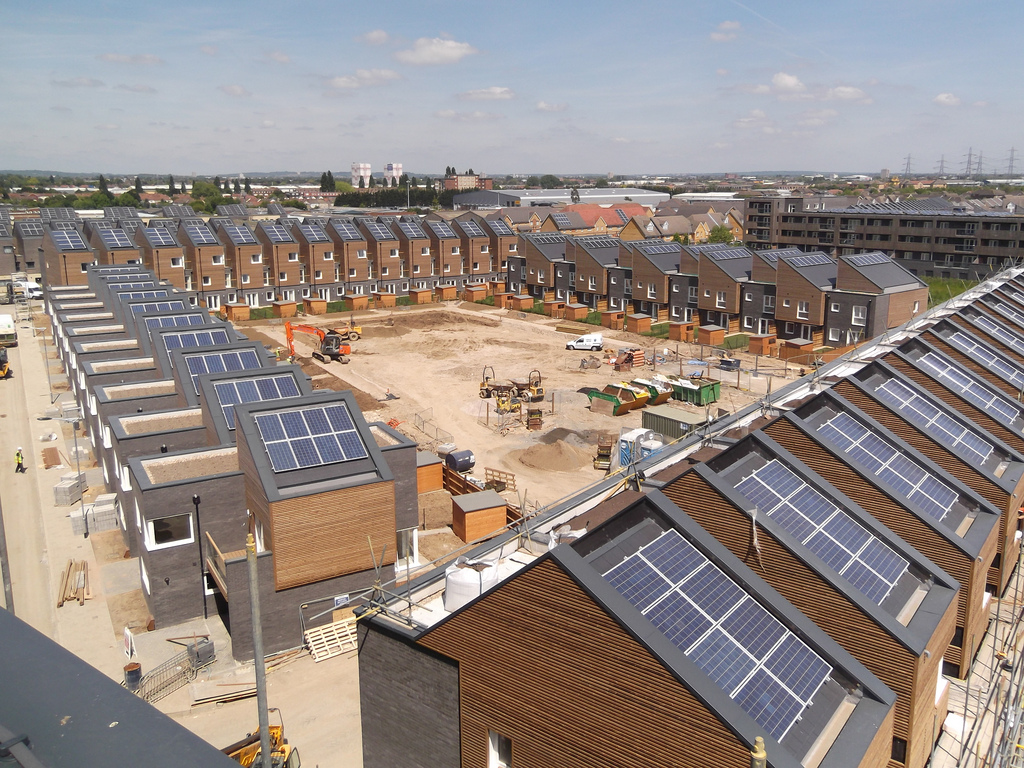Taking action to limit climate change is important on so many fronts, from health and wellbeing to equity and social cohesion, and from resilience to economic opportunity.
Public health and wellbeing
Changing weather patterns, more frequent extreme weather episodes and rising temperatures have direct implications on our health and pose challenges to the way in which the public health and social care systems operate.
Climate action can have dramatic impacts on public health and wellbeing. For example:
- Decarbonising the transport sector has the potential to make considerable improvements to air quality and public health;
- Improving the energy efficiency of homes can help to alleviate fuel poverty;
- Access to good quality green space and nature is a significant contributory factor for mental and physical wellbeing, particularly in urban areas.
Green jobs and skills
In November 2020, the Government published their Ten Point Plan for a Green Industrial Revolution. This commits the Government to mobilising £12 billion of government investment to create and support up to 250,000 green jobs in sectors such as offshore wind, low carbon hydrogen, zero emission vehicles, active travel and greener buildings. The UK’s Levelling Up Strategy, published in February 2022 announced that Local Skills Improvement Plans will be rolled out with funding across England, giving local employer bodies and stakeholders a statutory role in planning skills training in their area, to better meet local labour market needs.
Promoting green skills and jobs can help to make the local economy fit for the future. It can boost earning power for people right across the country. And it can help protect the climate and environment upon which we and future generations depend.
Focusing on enabling local people to access the necessary skills to meet the future needs of a low carbon economy can help to protect against unemployment as the economy changes. And supporting local businesses in a changing economy can help protect them against future threats to their business (e.g. low emission zone charges for diesel vehicles).
Further information can be found in this report on council action on green jobs and skills, commissioned by Friends of the Earth and Ashden.

Resilience
Resilience is about making an area better equipped to cope with future changes, including climate impacts:
- Our climate is changing, with hotter summers and increased frequency of severe weather events predicted. When these do occur, councils are on the frontline in providing an immediate response. They are also responsible for dealing with many of the longer-term consequences, such as damaged roads and infrastructure.
- Energy prices: The cost of household energy bills is forecast to rise steeply in 2022 – by as much as 50%. This will put millions of households into fuel poverty.
- Changes to the energy we use: There will be a steep increase in the number of electric vehicles on our streets in the coming years. And within the home, heating systems will change to become lower carbon – for example with heat pumps replacing gas boilers.
Local authorities can do a number of things to increase the resilience of an area, including:
- Making buildings resilient to overheating risks as well as increasing costs of energy by making them very efficient.
- Ensuring new development is designed to be able to accommodate likely changes such as increased uptake of electric vehicles and heat pumps.
- Reducing reliance on centralised energy systems through promoting community owned renewable generation and thus reducing the likelihood of future energy shocks.
- Encouraging sustainable transport through reducing the space taken up by cars, thus providing potential for more tree planting and green space. This can increase the resilience of urban areas to withstanding heatwaves and also increase absorption of heavy rainfall, thus reducing flooding.
Some households will be less resilient than others to future changes, whether these are climate impacts or energy costs. Councils can work to identify the most vulnerable groups and target resources at reducing their vulnerability or increasing their resilience.
Equity and social cohesion
Through joined-up thinking, action on climate change can also help to address inequalities and improve social cohesion. Vulnerable people and those on lower incomes are often those who are most disadvantaged in relation to issues like poor air quality, energy costs, and access to green space. Making homes more efficient and supporting people to reduce their energy bills can help some of the most vulnerable in our society. Community energy projects can also play a key role in tackling fuel poverty, making carbon savings and delivering a range of other social and economic benefits, like building stronger community ties, local jobs and skills.
With targeted investment in skills and training, jobs can be created in low carbon sector for those previously not in employment or whose high-carbon jobs are under threat. Meanwhile, access to green spaces can increase life expectancy and reduce health inequalities. A recent paper in the Lancet found that a large number of premature deaths in European cities could be prevented by increasing exposure to green space, while contributing to sustainable, liveable and healthy cities.
Previous Section:
1.5 Opportunities for action
Next Section:
1.7 Role of decision makers

